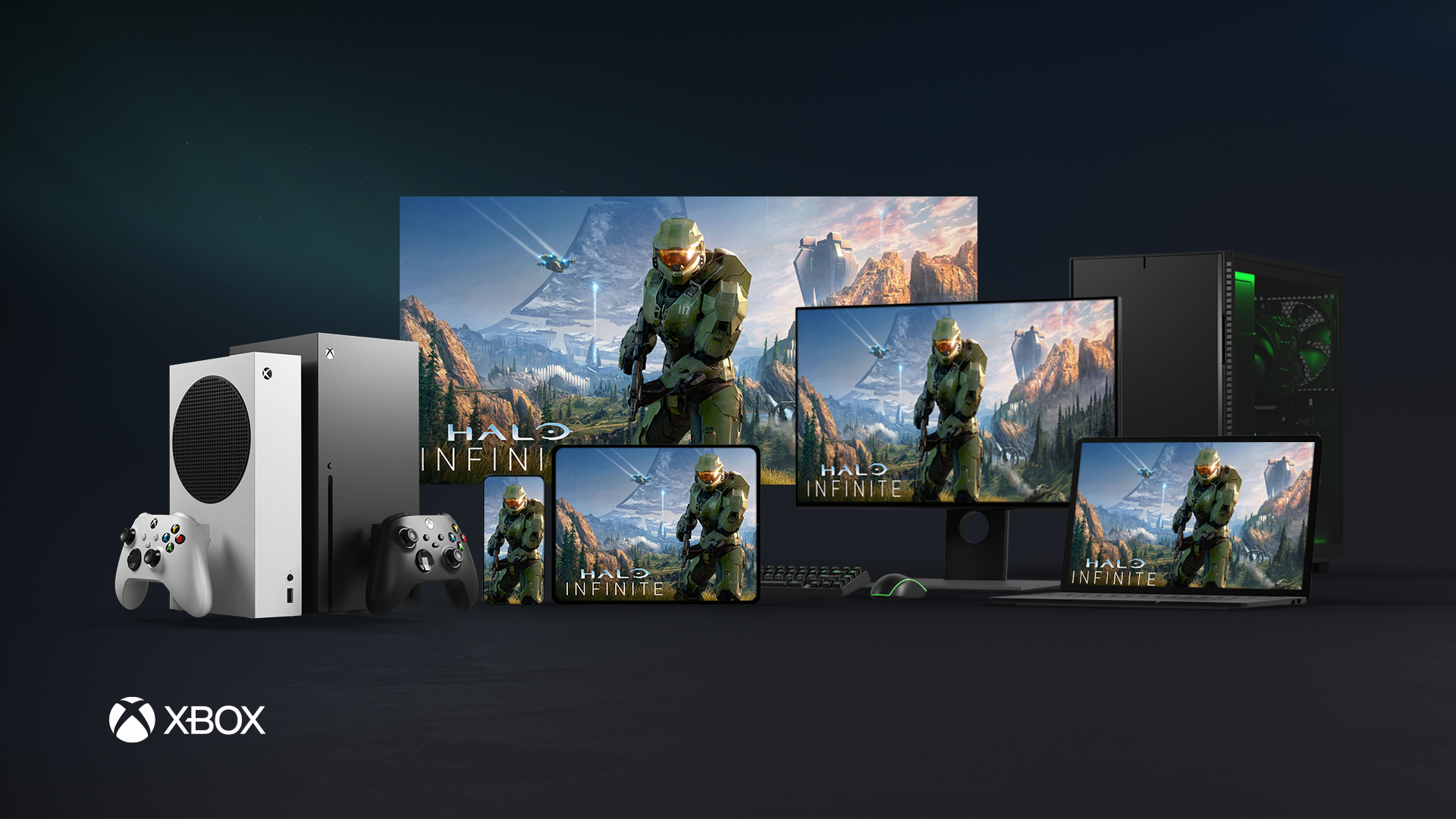
For years now, everything Microsoft has done to support the Future of Xbox has been a gamble with no obvious outcome; that's the price you pay having spent an entire generation cycle on the defensive. From the introduction of Xbox Game Pass to the expansion into PC and Cloud Gaming. The acquisition of billion dollar developers and heavy investment in existing studios. The decision to simultaneously launch two next-generation consoles amidst a global pandemic. Any one of these business decisions could have proven to be a costly mistake.
But all of it has led Xbox to where it is today: on a quest to bring three billion players into its ecosystem. The Xbox Series X is out there, and the world's most powerful home console refuses to stay in stock. Xbox Game Pass has become transformative for game players and makers alike, with the subscription service not only driving up engagement and sales, but even helping rival platform exclusives go green. PC has introduced existing Xbox franchises to new playerbases, while Xbox Cloud gaming (previously xCloud) makes Microsoft's dream of bringing billions to Xbox sound less hyperbolic by the day.
We are just days out from the E3 2021 schedule kicking off, where Microsoft is expected to put on a convincing 90-minute performance to demonstrate what each of the 24 first-party Xbox studios are working on and, critically, when we can expect to play them. Ahead of the conference, we were given the opportunity to learn more about how Xbox is moving away from being a console-centric company and trying to leverage content, community, and the cloud to become a global gaming ecosystem.
Microsoft is all-in on gaming

It's rare to see the CEO of a company as vast as Microsoft get involved with E3, but Satya Nadella has some things to celebrate. Earlier this year, Nadella announced that Microsoft had surpassed $5 billion in gaming revenue in a quarter for the first time. That was helped along by the release of the Xbox Series X, Xbox Live surpassing 100 million monthly active users, and Game Pass reaching 18 million subscribers. His confidence in Xbox has finally paid off.
"As a company, Microsoft is all-in on gaming," Nadella confirms. "Gaming is the most dynamic category in the entertainment industry. Three billion consumers look to gaming for entertainment, community, creation, as well as a real sense of achievement, and our ambition is to empower each of them, wherever they play."
Microsoft is targeting three billion players. Let that sink in for a second; the best-selling console of all-time is the PlayStation 2, and that shifted a modest 155 million units by best estimates. So is this a case of a CEO setting impossible goals for employees beneath him? Surprisingly, it's actually a mission shared by Phil Spencer, the head of Xbox: "Our mission at Xbox is simple and powerful: we are here to bring the joy and community of gaming to everyone on the planet. To achieve that, our aspiration is to empower everyone to play the games you want, with the people you want, anywhere you want."
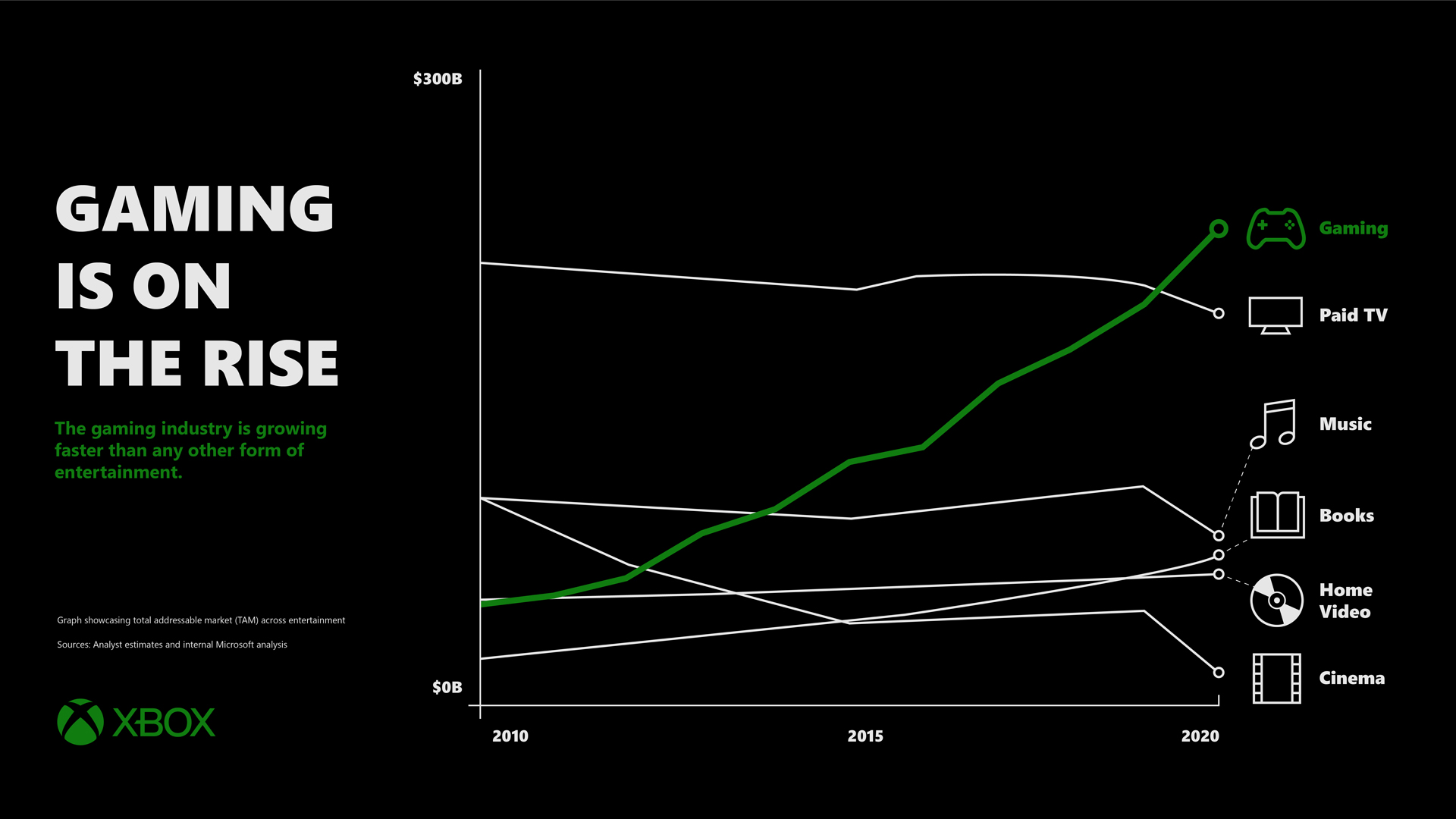
"In the past, a lot of game companies have been about locking players into certain hardware and erecting barriers between players"
Phil Spencer, Head of Xbox
"That's a big change from how this industry has traditionally worked. In the past, a lot of game companies have been about locking players into certain hardware and erecting barriers between players," says Spencer. "We're taking a different approach, because we believe that games, that interactive entertainment, aren't really about hardware and software. It's not about pixels, it's about people."
Sign up to the GamesRadar+ Newsletter
Weekly digests, tales from the communities you love, and more
"Gaming is fundamentally aligned with our mission as a company," Nadella continues. "When you talk about Xbox's mission to bring the joy and community of gaming to everyone on the planet, which I absolutely love, that is precisely aligned with Microsoft's mission, which is to empower every person and every organization on the planet to achieve more."
Microsoft may wish to reach three billion gamers, but do they really exist? Despite video games being a relatively new medium – it wasn't so long ago that many of the biggest games in the world were being built in bedrooms – the growth has been truly exponential. "As an overall industry, gaming is now much larger than film and music, combined, as one of the biggest media industries in the world," says Tim Stuart, CFO of Xbox. "We're seeing real commitment from the company behind our strategy to reach everyone on Earth with a seamless gaming experience."
New exclusives every quarter

Microsoft's thesis is this: Players come to Game Pass for the exclusives and stay for the ecosystem. The problem is that Xbox's first-party portfolio has been something of a sore area for seven years. It's worth remembering that, when Microsoft launched the Xbox One in 2013, it was in a remarkably different position than the one it is in today. Then, the company had just five Microsoft Studios making exclusives, which seems minuscule compared to the 23 now operating under the Xbox Game Studios umbrella in 2021. Realignment takes time and money; Microsoft believes it's finally where it needs to be.
"First and foremost, we are committed to building a diverse collection of studios that deliver a predictable pipeline of high-quality games. We're committed to creating games that generate excitement, anticipation, and engagement with our fans," says Matt Booty, head of Xbox Game Studios.
The question is, where are all of these games? For a long time now, it's felt as if we're always just one more year away from seeing the full power of this lineup executed. It makes the Xbox E3 conferences somewhat bittersweet. Booty promises that that's about to change.
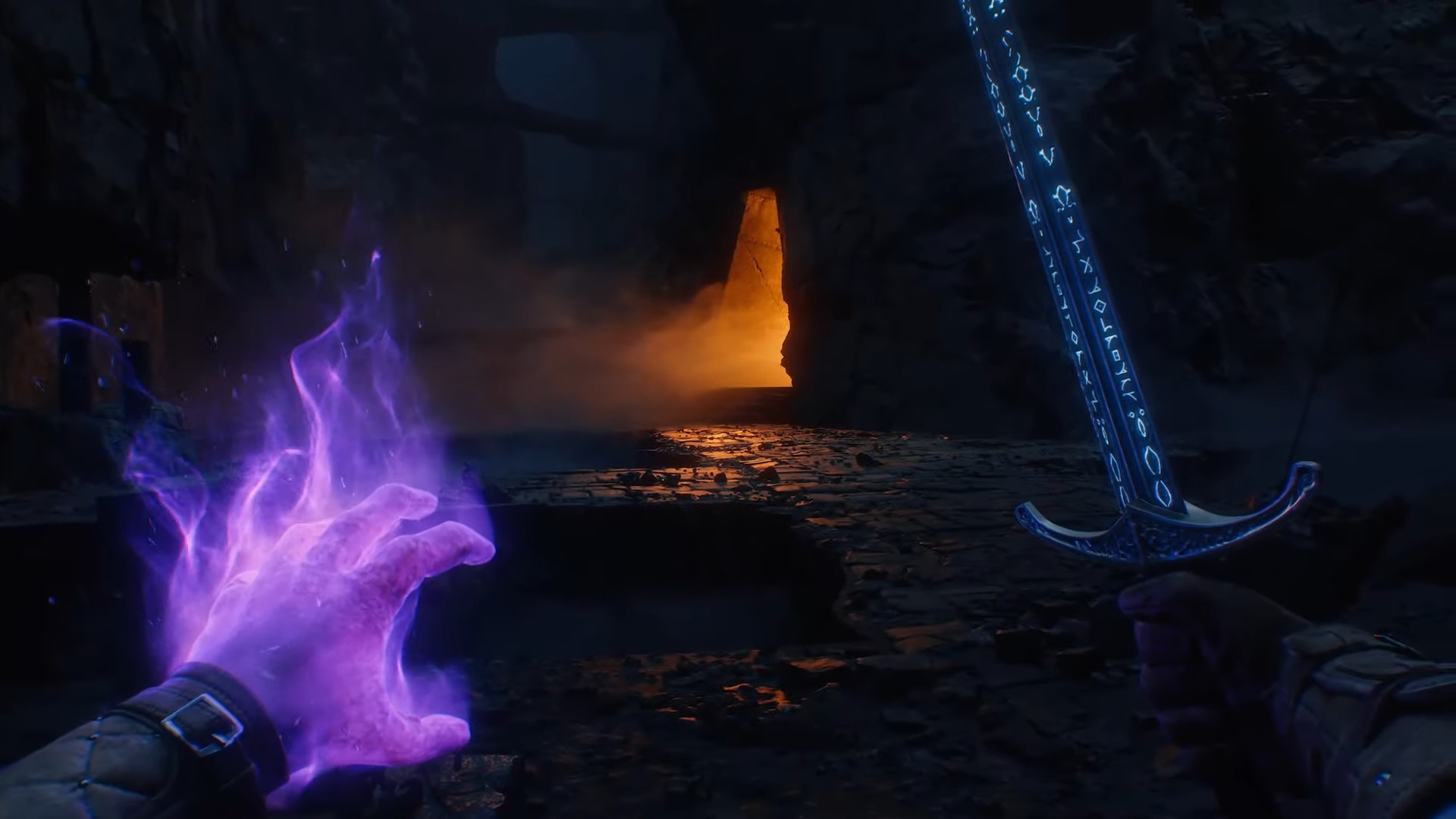
"In terms of the overall lineup, we want to get to a point of releasing a new game every quarter"
Matt Booty, Head of Xbox Game Studios
"All of our studios are really creator-led. And by that, I mean that we want to give them the proper degree of autonomy so they can pursue their creative passion and make the games they are good at making… We're in the entertainment business, and I believe the best thing we can do is to provide the guidance, the resources, and the support to our studios so they can make the best entertainment."
"In terms of the overall lineup, we want to get to a point of releasing a new game every quarter. Games can take up to four or five years to make, and the reality is that not every project we start will make it to launch… that's how we've gotten to our state today, with two dozen studios, making games across a variety of genres. We know that a thriving entertainment service needs a consistent and exciting flow of new content. Our portfolio will continue to grow as our service grows."
It isn't yet clear how many of these upcoming games we'll see on Sunday, or what that growth in the future will look like, although Booty suggests that more acquisitions could be on the way. "We're going to stay hard at work on delivering world class compelling game experiences – and you'll see more of that on Sunday at our game showcase. And we will continue to look for studios that can add great people, great teams, and great new ideas to our lineup."
PC is still key
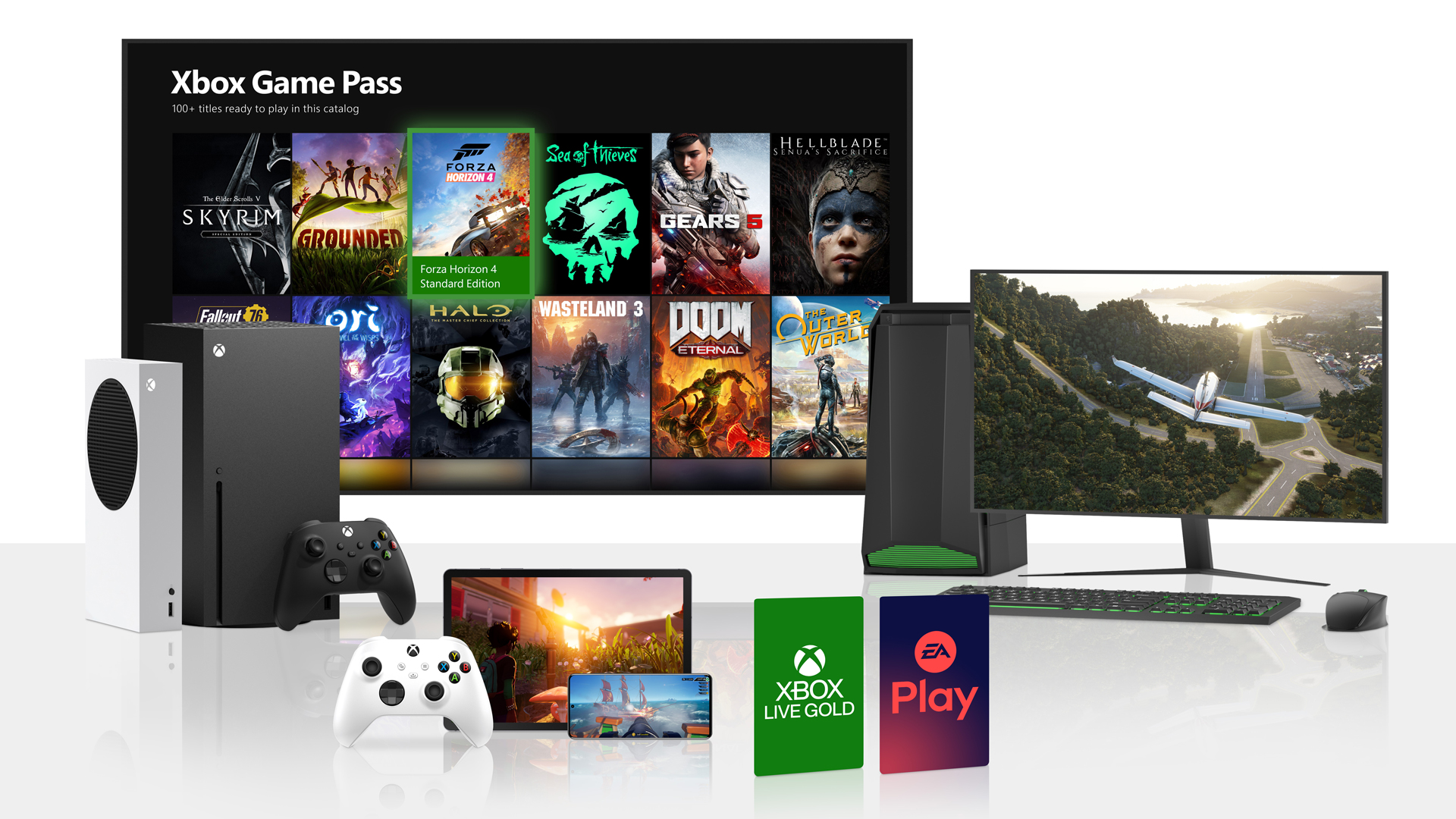
"Others bring console games to PC years later, not only making people buy their hardware up front, but then charging them a second time to play"
Phil Spencer, Head of Xbox
Many had believed that Microsoft had given up on PC gaming. The company had a rough time of it, particularly in the Windows 10 era and, as Epic Games has discovered, going up against Steam is a risky, expensive business. So it was a surprise to many when, in 2019, Microsoft announced Game Pass for PC followed by a commitment to bring more Xbox console exclusives to Steam. That gambit, Spencer says, has paid off.
"We have a huge growth opportunity on PC. We expanded to simultaneously shipping our first-party games on both console and PC. And last year, we more than doubled our first-party retail game sales on PC, and we were also one of the biggest third-party publishers on Steam. Looking forward, we see continued growth on PC next year, through another amazing slate of Xbox Games Studios games, and Bethesda games coming to PC, while at the same time, Game Pass on PC will be a critical part of our Windows gaming strategy."
Spencer doubled down on this strategy, even taking a swipe at Xbox's competitors in the process. "Right now, we're the only platform shipping games on console, PC, and cloud simultaneously. Others bring console games to PC years later, not only making people buy their hardware up front, but then charging them a second time to play on PC."
You have to believe that he's referring to Sony here, which began in earnest by bringing second-party PS4 and PS3 exclusives – Death Stranding and Heavy Rain, for example – to Steam in the summer of 2020, before bringing first-party PS4 games Days Gone and Horizon Zero Dawn to the service shortly thereafter as premium releases. "And of course," Spencer adds, "all of our games are in our subscription service day one, full cross-platform included."
Game Pass means the world to Xbox
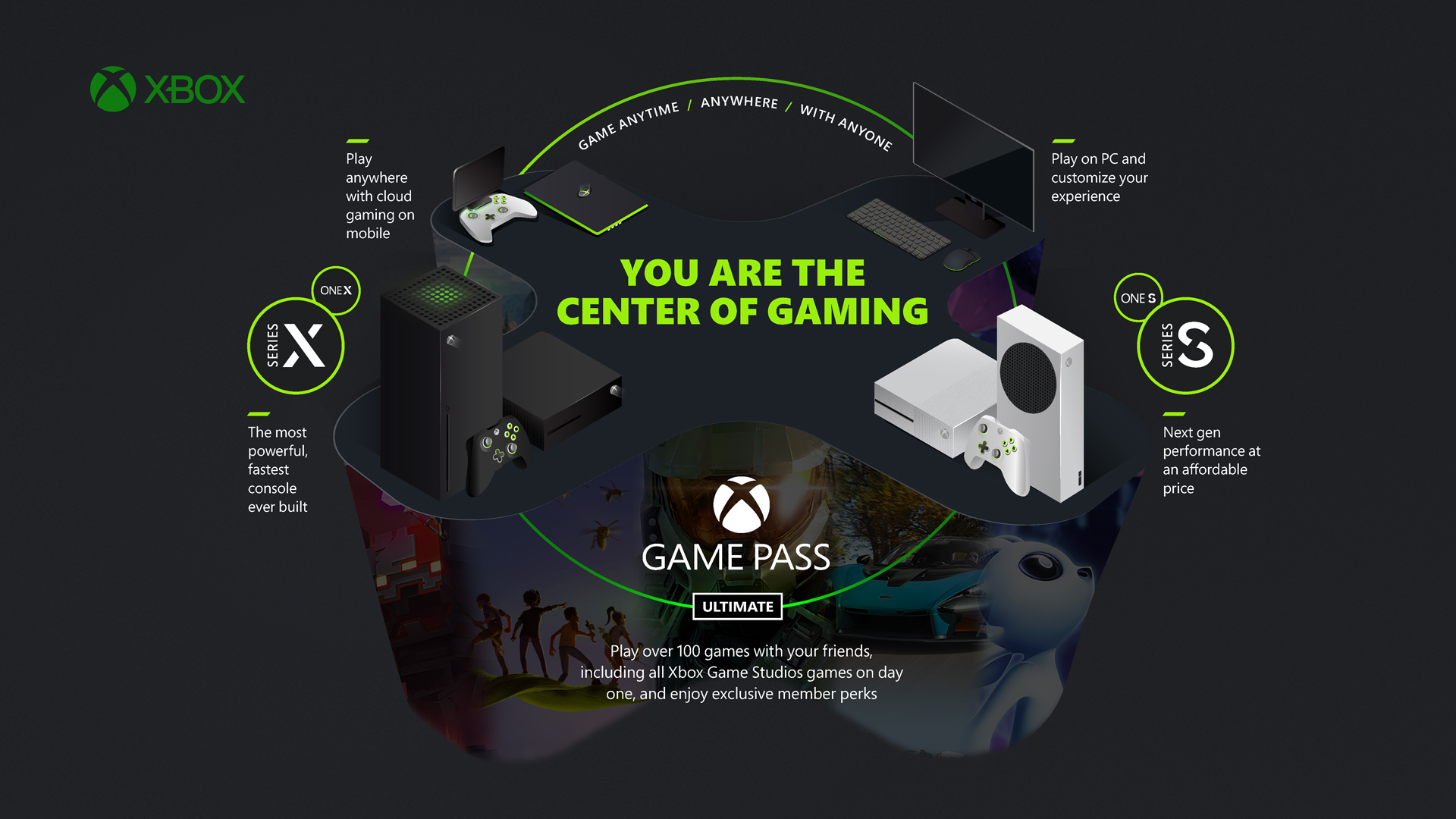
Everything Microsoft is doing – its expansion of Xbox to just about any device with a screen and an internet connection – is fueled by Game Pass, the subscription service that ties the entire ecosystem together. Microsoft CEO Satya Nadella says the service has been transformative for the company. "With Game Pass, we are truly redefining how games are distributed, played, and shared. The content is the driving force behind Game Pass' growth, which is why I'm so excited about our acquisition of ZeniMax, which brings some of the world's most iconic, beloved games to the service. With Game Pass coming to the browser, the value of the subscription is going to transcend from the console to the PC to mobile, and it's great to see the progress."
That last point is key. Liz Hamren, CVP of gaming experiences and platforms, says that a service like Game Pass is the key to ripping down barriers to entry. "Hardware only exists as a gateway to the games themselves. And today, a cornerstone of the Xbox experience is Game Pass. Now, players don't have to spend $60 or more on individual games. Instead, with Game Pass, you have access to a library of hundreds of games for a low monthly price. The Game Pass library includes every exclusive from both Xbox Game Studios and Bethesda on the day they launch, as well as new third-party games that enter the service every month."
While we often focus on the power of Microsoft's first-party properties, and how important it is for new releases from Xbox and Bethesda to hit the service on day of release, CVP and head of game creator experience and ecosystem Sarah Bond says that exclusives are a small piece of why Game Pass is so key for Microsoft and its partners. "We see that engagement actually goes up 8 times when it goes into Game Pass, and subscribers of Game Pass actually play 30% more genres and 40% more games. So they're really exploring things that they wouldn't otherwise. And creators love this. It's an incredible way for them to build community around what they have."
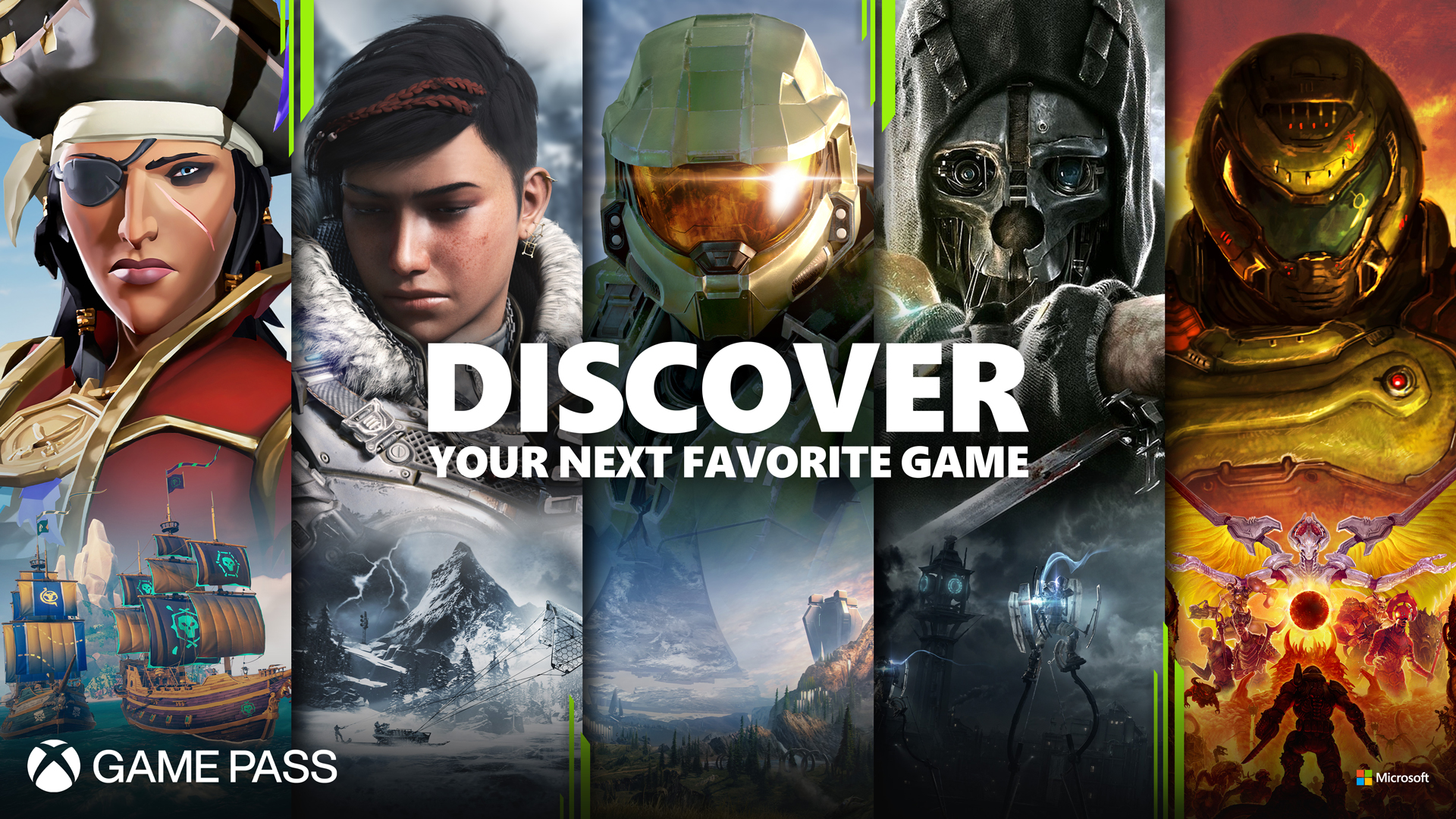
"The content is the driving force behind Game Pass' growth, which is why I’m so excited about our acquisition of ZeniMax"
Satya Nadella, Microsoft CEO
Head of Xbox Phil Spencer believes that Game Pass is becoming a "true discovery engine and a platform". Not only to get Xbox exclusives in front of people, but more third-party games too. As Hamren can attest: "Another great example of Game Pass as a discovery engine is EA Play in Game Pass Ultimate. Since we partnered with EA, their incredible portfolio of games has gained millions of new fans on Xbox. And EA Play has seen record usage on Microsoft platforms, driving hours played on these platforms more than 200% compared to before the integration."
Microsoft is also quick to shout about other successes on the platform. MLB: The Show 21, once a PlayStation exclusive, was the biggest sports game of the year and the second biggest sports game of all time on Xbox, with Game Pass introducing millions of new players to the series and helping, Microsoft believes, MLB: The Show to become the #1 selling paid game on the platform in April. Outriders, another game that launched directly into the subscription service, saw similar success, becoming a top 10 selling digital game on Xbox in April. Game Pass may give players access to a library of 100s of games, but breakout hits inspire those out of the subscription ecosystem to pay their way into the fun as well.
"Rather than crowding out retail sales, we're seeing that when many games go into Game Pass, there's actually an uplift for the game. Not just on our service, but also in digital retail – both in our store and in others, like Steam or the Epic Games Store," says Spencer. "And that's because of the power of the community to drive sales. There's a powerful effect in our industry when more people have access to entertainment that drives continued adoption in popularity. When people see their friends playing games, they want to join them. And whether a player chooses to join Game Pass or buy a game elsewhere, our publishing partners see the benefit of being on our service."
New hardware and platforms
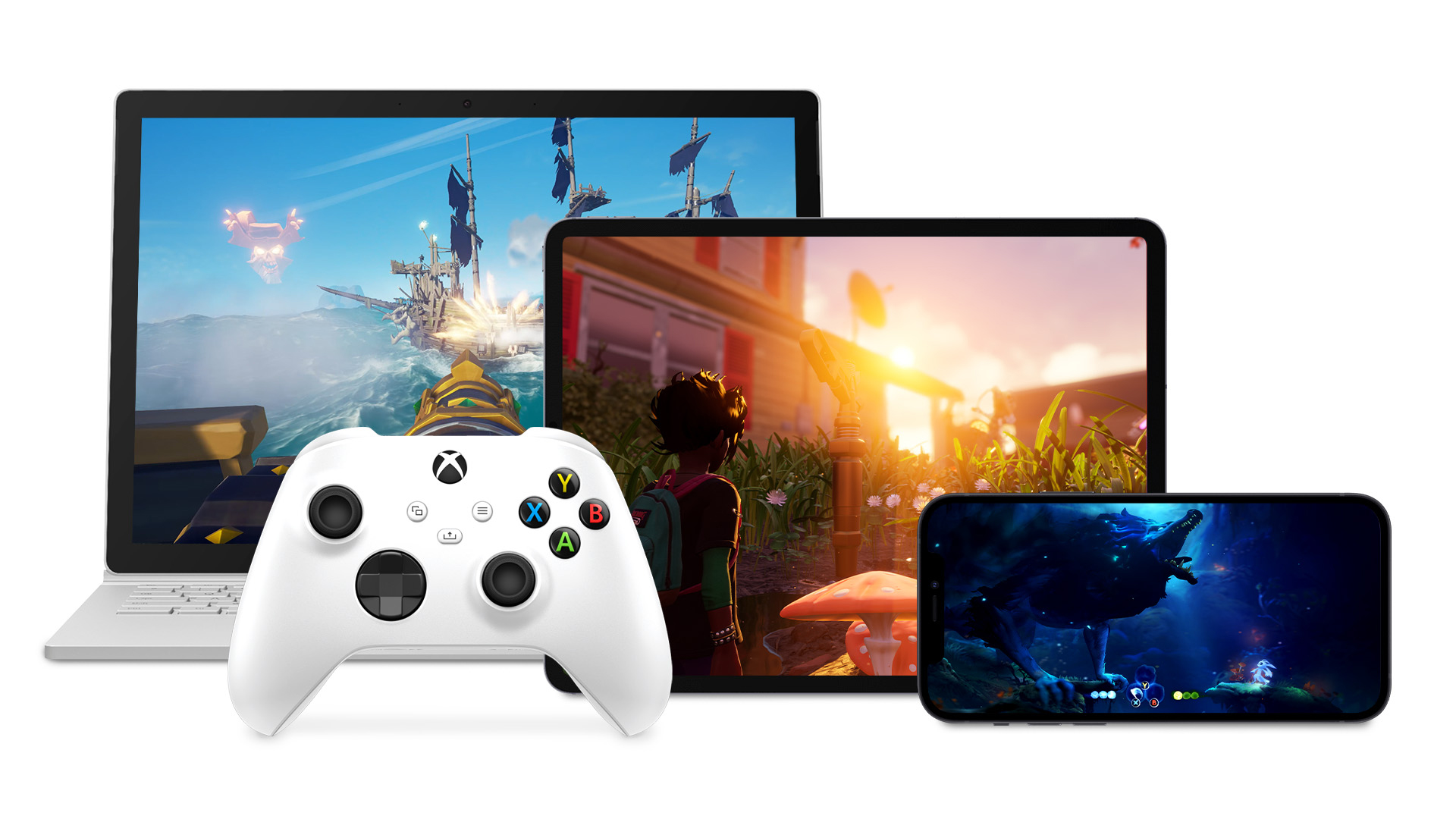
"We're already hard at work on new hardware and platforms, some of which won't come to light for years"
Liz Hamren, CVP of gaming platforms
Microsoft is in this weird position. Even as it tries to support the Xbox Series X and Series S, the company has acknowledged that the future of Xbox is in its ecosystem – not in consoles. Matt Booty recognizes this when he says that "in terms of market size, console is about 200 to 300 million players", which is a small number in the context of Microsoft's plan to reach billions of gamers. That's why the company is investing so heavily in PC and cloud gaming.
However, Liz Hamren, the CVP of gaming experiences and platforms, is keen to stress that the Xbox Series X and Series S should be seen as the ultimate way to play Xbox games moving forward. "While we continue to expand in PC and mobile, console remains our flagship experience. We want to deliver the most powerful, capable consoles in the world, devices that empower our players to enjoy amazing games for years to come, including gameplay we can't even imagine yet."
"Cloud is key to our hardware and Game Pass roadmaps, but no one should think we're slowing down on our core console engineering," Hamren continues. "In fact, we're accelerating it. We're already hard at work on new hardware and platforms, some of which won't come to light for years. But even as we build for the future, we're focused on extending the Xbox experience to more devices today so we can reach more people."
While new hardware and platforms are being actively pursued behind the scenes, they won't necessarily be made by Microsoft. Hamren points to Game Pass being put onto new devices as an example that could prove to be a true game changer – getting Xbox into the home in ways that none of its competitors are able to. "We're working with global TV manufacturers to embed the Game Pass experience directly into internet-connected TVs so all you'll need to play is a controller. Beyond that, we're also developing standalone streaming devices that you can plug into a TV or monitor, so if you have a strong internet connection, you can stream your Xbox experience."
Power of the Cloud

"Later this year, we'll [integrate] cloud gaming into our console experience, to light up all kinds of scenarios, like 'try before you download'"
Kareem Choudhry, CVP of cloud gaming
Cloud gaming is the most important and nebulous part of Xbox's strategy. It's clearly the pathway to reaching a billion gamers, as Microsoft expands its ecosystem across more devices than ever before – TVs, Android, PC, and even Apple iPhones and iPads. Microsoft CEO Satya Nadella is quick to extol the virtues of this way to play. "Cloud gaming is truly a breakthrough experience. I mean, for me, you just go to Xbox.com/play, and I'll tell you, it's a really fast, easy way to get into gaming."
"Our browser client, which is currently in limited beta, will open to all Ultimate members in supported markets in the next few weeks," says Kareem Choudhry, CVP of cloud gaming. "By using advanced web technology, we're delivering directly from the cloud to a browser, with Edge, Chrome, and Safari, players will be just a click away from Xbox across a range of devices, even on iPhones."
Head of Xbox Phil Spencer believes that the cloud is essential if Xbox wants to grow into a global gaming ecosystem and tear down some long-standing barriers to play. "If you couldn't spend the hundreds of dollars on a console or potentially the thousands of dollars on a high-end gaming PC, you simply couldn't participate in the global gaming community in a significant way. The cloud will allow us to completely remove these barriers to play, worldwide."
"With cloud gaming, we now have the ability to bring these great AAA quality games to the hundreds of millions of below-spec Windows PCs that, to date, haven't been able to play the hit games that everybody sees," says Spencer, touting the expansion of service that will soon mean Xbox is accessible via phone, tablet, PC, and console to over one billion people in 26 countries across five continents.
"A phone that can only play Angry Birds can now play MLB The Show. An affordable laptop made for web browsing can now play Halo in full fidelity. This is what playing anywhere you want looks like. Delivering on this promise together has been years in the making," says Kareem Choudhry, CVP of cloud gaming. "Later this year, we'll add cloud gaming directly to the Xbox app on PCs, and integrated into our console experience, to light up all kinds of scenarios, like 'try before you download.'"
While it may seem like the Xbox Series X is a footnote in Microsoft's broader strategy, it's actually powering much of its growing ambition in cloud gaming – literally. The company is in the final stages of switching its Azure cloud network from banks of Xbox Ones to Xbox Series X hardware. "We're now in the final stages of internal testing, and we will be upgrading the experience for Ultimate members in the next few weeks. The world's most powerful console is coming to Azure. Now, as all these elements combine with what is already in market, it will change the landscape of what is possible with Xbox," says Choudhry.
Can Microsoft reach three billion players?
"Achieving our mission is not going to be easy, and we have a long way to go"
Phil Spencer, Head of Xbox
With the Xbox Series X out in the wild, Microsoft has outlined its strategy for the Future of Xbox and it's... bold. The desire to reach three billion gamers, to make Game Pass a central pillar of a strategy that extends beyond console to phones, tablets, PCs, laptops, and TVs seems wildly ambitious.
While the combination of cloud gaming and Game Pass could indeed be the key to bringing Xbox into new markets, Microsoft is yet to address the elephant in the room: many gamers around the globe simply do not have the means, access, or ability to get fast-enough internet to support streaming games. Ultimately, Microsoft has set its ecosystem up for success in its quest to broaden Xbox to more players, but its biggest issue may just be cost, technology and adoption rates outside of its control.
Still, this is a start – and a promising one at that. Phil Spencer believes that Microsoft is the only company that could take such a wild dream, of bringing three billion players into one central ecosystem, and make it a reality. Of course, the head of Xbox has to say that, but only time will tell if Microsoft can really pull it off.
"Achieving our mission is not going to be easy, and we have a long way to go. But we believe that only this company, only Microsoft, can bring to bear the global scale, the vast wellsprings of technical innovation, the financial resources, and the deep, decades-long legacy in video games required to truly bring the joy and community of gaming to everyone."

Josh West is the Editor-in-Chief of GamesRadar+. He has over 15 years experience in online and print journalism, and holds a BA (Hons) in Journalism and Feature Writing. Prior to starting his current position, Josh has served as GR+'s Features Editor and Deputy Editor of games™ magazine, and has freelanced for numerous publications including 3D Artist, Edge magazine, iCreate, Metal Hammer, Play, Retro Gamer, and SFX. Additionally, he has appeared on the BBC and ITV to provide expert comment, written for Scholastic books, edited a book for Hachette, and worked as the Assistant Producer of the Future Games Show. In his spare time, Josh likes to play bass guitar and video games. Years ago, he was in a few movies and TV shows that you've definitely seen but will never be able to spot him in.


